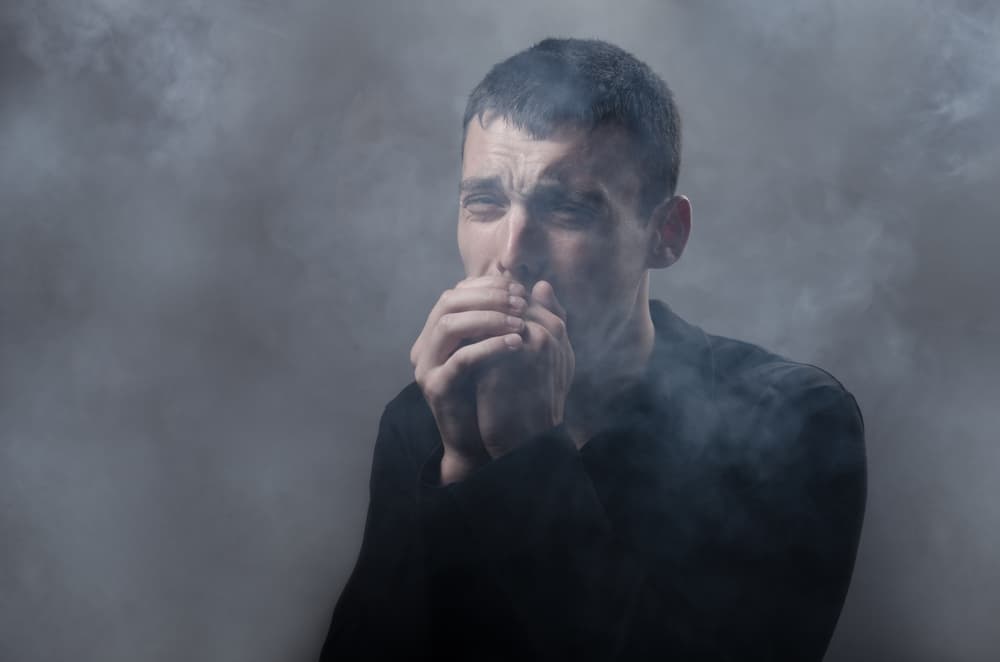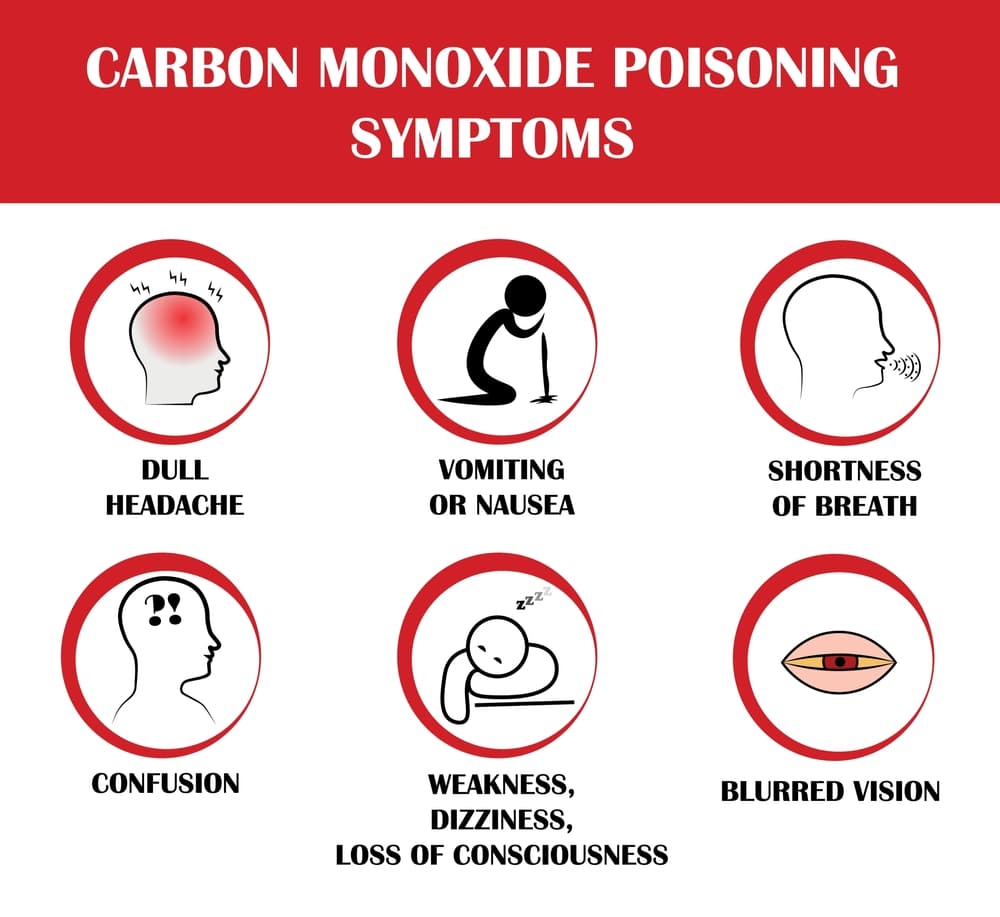Carbon monoxide poisoning is an avoidable danger because someone can take precautions to lower or eliminate the risk, and a few simple steps can keep you safe in your home.
The landlord must prevent carbon monoxide poisoning if you do not own your residence. Unfortunately, some landlords defer maintenance and go cheap to enhance their profits, so you must do everything possible to reduce the chances of carbon monoxide poisoning.
If you or a loved one have become sick from carbon monoxide poisoning, you can file a lawsuit against the responsible party and receive substantial financial compensation. First, you must contact an experienced carbon monoxide poisoning attorney to take your case. They can gather the evidence that someone else was to blame for what happened. Then, your attorney will fight for you to receive top dollar in an insurance claim or lawsuit. If you still need to hire a skilled carbon monoxide poisoning lawyer, now is the time to reach out to one to schedule your free initial consultation.
Understanding Carbon Monoxide and Why it Is So Dangerous
Carbon monoxide is an odorless and colorless gas produced by the incomplete burning of fuel and consists of one carbon atom triple bound to one oxygen atom. The danger of carbon monoxide is that it can get into your blood and crowd out oxygen in your body. Then, you will be unable to breathe in the oxygen needed for your brain and internal organs to survive.
There is no warning that you are breathing in a hazardous gas, and you may never realize that you have suffered carbon monoxide poisoning before you lose consciousness. You may suffer death or a permanent injury that comes from oxygen deprivation.
Each year, over 400 people will die from carbon monoxide poisoning, and roughly 50,000 people will seek treatment for carbon monoxide injuries.
Common Injuries From Carbon Monoxide Poisoning
Carbon monoxide poisoning can result in a range of injuries, varying in severity depending on the level and duration of exposure. Understanding the potential injuries caused by carbon monoxide is crucial in recognizing the importance of seeking legal representation to navigate the complex process of filing a claim.
One of the most common injuries resulting from carbon monoxide poisoning is neurological damage. When exposed to high levels of CO, the gas replaces oxygen in the bloodstream, depriving the brain of the necessary oxygen supply. This lack of oxygen can lead to brain damage, causing long-term cognitive impairments, memory loss, and difficulties with concentration and coordination. These neurological injuries can have a significant impact on the victim’s quality of life, requiring ongoing medical treatment and rehabilitation.

Another common injury associated with carbon monoxide poisoning is respiratory damage. Inhaling high levels of CO can lead to respiratory distress, including coughing, wheezing, and shortness of breath. Prolonged exposure to carbon monoxide can also cause severe lung damage, leading to conditions such as pulmonary edema and chronic obstructive pulmonary disease (COPD). These respiratory injuries can result in long-term health complications, requiring extensive medical care and monitoring.
In addition to neurological and respiratory injuries, carbon monoxide poisoning can also cause cardiovascular damage. The gas reduces the blood’s ability to carry oxygen, putting a strain on the heart as it works harder to meet the body’s oxygen needs. This increased stress can lead to heart conditions such as arrhythmia, heart failure, and even heart attacks. These cardiovascular injuries can have life-threatening consequences, necessitating ongoing medical intervention and potential long-term treatments.
If you or a loved one has experienced injuries due to carbon monoxide exposure, don’t hesitate to seek legal representation from a carbon monoxide lawyer to protect your rights and pursue justice.
Legal Responsibilities and Regulations
Anyone who provides an appliance may owe you a duty of care. If you rent property from a landlord, they must provide reasonably safe premises. They must take the necessary steps to prevent anyone from becoming a victim of carbon monoxide poisoning. Otherwise, a tenant can sue them in a premises liability lawsuit. If someone installs or maintains an appliance, they must use reasonable care.
Entities who manufacture or sell the appliance must ensure you receive something free of defects. If not, they can be held strictly liable for any damages you have suffered in a product liability lawsuit, and you may be entitled to significant financial compensation.
Home Appliances and Carbon Monoxide Safety
Home appliances or vehicles that burn fuel are the primary risk of carbon monoxide poisoning.
These appliances can include:
- Clothes dryers
- Water heaters
- Furnaces or boilers
- Fireplaces, both gas and wood-burning
- Gas stoves and ovens
- Motor vehicles
- Grills, generators, power tools, lawn equipment
- Wood stoves
Professionals must install these appliances because otherwise, the installation can lead to a leak that may discharge carbon monoxide into a room. Then, a qualified technician must inspect them regularly to ensure they spew exhaust correctly and immediately repair them if there is a problem. Occupants should even consider evacuating the home until a professional makes the repairs because their safety is on the line.
Educating the Public About the Dangers of Carbon Monoxide
Carbon monoxide is a silent killer in more ways than one, and much of the general public needs to be aware of the dangers of this deadly gas if they do not know how to protect their families.
Education can begin to make the public aware of the risks that they face, and January is Carbon Monoxide Awareness Month. Governments and local authorities have been running awareness campaigns, although much of the public still needs to familiarize themselves with the dangers of carbon monoxide.
Tips for Carbon Monoxide Prevention
The Centers for Disease Control gives tips to help prevent carbon monoxide poisoning, which include:
- Ensure a qualified technician annually inspects and maintains gas-burning appliances, such as HVAC systems and stoves.
- Ensure that your chimney is open, especially before you light a fire, and check that your fireplace damper is open before you light a fire.
- Only use a gas oven for cooking and not for heating a home
- Any generator inside your home must be less than 20 feet away from a window or a door, as generators are a powerful source of carbon monoxide.
- Do not use portable, flameless chemical heaters indoors.
- Never run a car in a garage attached to a house, even with open garage doors.
Legislative and Policy Initiatives
Some of the burden for keeping you safe also falls on local authorities. The federal government is the entity that sets standards that limit the amount of carbon dioxide that may be in a closed space.
State and local governments have the onus to keep you safe. They will pass laws that impose obligations on landlords that may prevent carbon monoxide poisoning. Some states have laws that require owners to install carbon monoxide detectors in specific environments, such as a rented dwelling or a hotel.
Carbon Monoxide Detectors
Besides a smoke detector, the carbon monoxide detector may be your home’s most essential safety equipment. Every single home needs a functional carbon monoxide detector to keep residents safe. However, some studies place the rate of American households with a working carbon monoxide detector as low as 33 percent.
Carbon monoxide detectors should alert you if there is a high level of carbon dioxide in your home. They work like a smoke detector, sounding off if there is an abnormal amount of carbon monoxide in the air.
Early detection is an absolute must for preventing carbon monoxide poisoning. Depending on the intensity of the leak, you may have less than minutes to get out of your home. Many people are sickened before they even notice any symptoms of carbon monoxide poisoning.
Several community programs distribute free carbon monoxide detectors; you can use one to give yourself peace of mind. If you live in a rented property, ensure the landlord has provided you with a carbon monoxide detector because it may be a part of the duty of care they owe you as a tenant.
Emergency Response Planning
Your family needs a quick action plan for a carbon monoxide leak. Since you only have minutes to escape your residence, your family must know the emergency plan since some may lose consciousness due to the poisoning.
If you detect carbon monoxide, you should leave the residence immediately. You should periodically review your emergency plan with your family to ensure everyone knows their responsibilities.
Lawsuits for Carbon Monoxide Poisoning

If you or a loved one has suffered an injury from carbon monoxide poisoning, you can take legal action against the responsible party to recover financial compensation. Some potentially liable entities may include:
- Property owner
- Hotel
- Landlord
- Business owner
- Management company
- Installation company
- Manufacturer
- Repair company
There may be more than one party you can name as a defendant in a lawsuit, and your attorney will investigate the accident and learn who may be liable to pay you damages.
Then, your attorney will file a lawsuit on your behalf. Usually, insurance companies will be involved in your case, and they will have an obligation to defend their policyholder. They will often decide whether to settle your claim.
You must prove that someone was negligent to win a carbon monoxide poisoning. If your lawsuit addresses product failure, you must show it was somehow defective.
Compensation in Carbon Monoxide Poisoning Lawsuits
If you win your carbon monoxide lawsuit, you will be legally entitled to total compensation for your injuries, and given the potential severity, the size of your settlement or jury award may be substantial. The responsible party will need to use the money to restore you to the position that you were in before the accident happened.
Your compensation in a carbon monoxide case can generally break down into two categories:
- Economic damages cover your financial losses from a personal injury, including medical bills, the cost of life care, and lost income (both actual lost income and a reduction in your earnings capacity).
- Non-economic damages compensate you for the experience that you have gone through after your injury. They are primarily pain and suffering, and anything else that can fall under its umbrella, including loss of enjoyment of life and emotional distress.
Punitive damages are rare in a personal injury lawsuit, but a jury can sometimes award them. These damages are for instances in which the defendant is grossly negligent or reckless, and the jury wants to make an example out of them.
A family can file a wrongful death lawsuit to receive financial compensation for its losses if a loved one dies from carbon monoxide poisoning. Like any personal injury case, you must prove that someone else was negligent.
Why You Need a Lawyer for a Carbon Monoxide Poisoning Case
It is never easy to obtain total and fair financial compensation when you have suffered a personal injury. It is possible to do so if you have an experienced personal injury lawyer representing you in the legal process. Your attorney fights for you from the beginning of the case until the end. They are the ones who spearhead your efforts to hold someone else accountable for what happened.
A carbon monoxide poisoning attorney will do the following for your case:
- Investigate your accident to gather evidence and help learn who may be possible defendants in a lawsuit
- Review your case to estimate the value of your case
- Help determine the most effective way for you to receive financial compensation
- File a lawsuit on your behalf if the pertinent court of law
- Negotiate a settlement of your lawsuit or argue your case in court
Carbon monoxide lawsuits can be complicated since they involve many scientific concepts. The responsible party may deny that they did anything wrong and may even try to blame you for your injuries. You must have an attorney with specific experience in carbon monoxide poisoning cases because not everyone can handle these cases successfully.

Consult a Carbon Monoxide Lawyer
Nothing stands between you and a carbon monoxide poisoning attorney except for the phone call you or a family member must make. You do not have to come up with anything from your bank account to get legal help. Your personal injury attorney works for you on a contingency basis, and you only have to pay them if you win your case or receive a settlement check.
